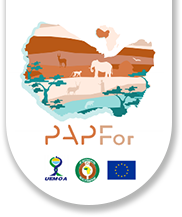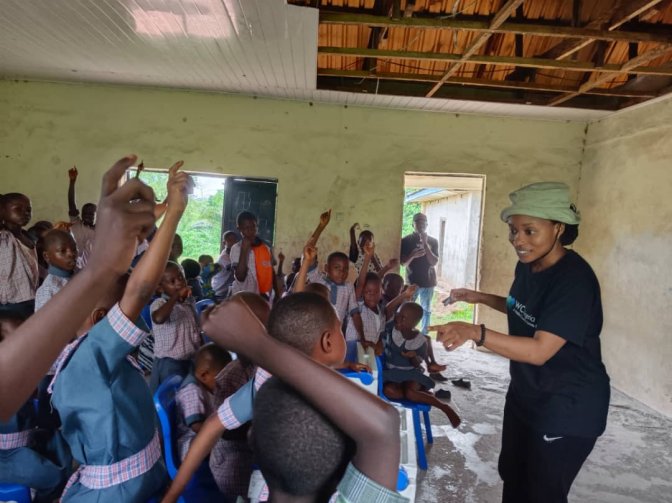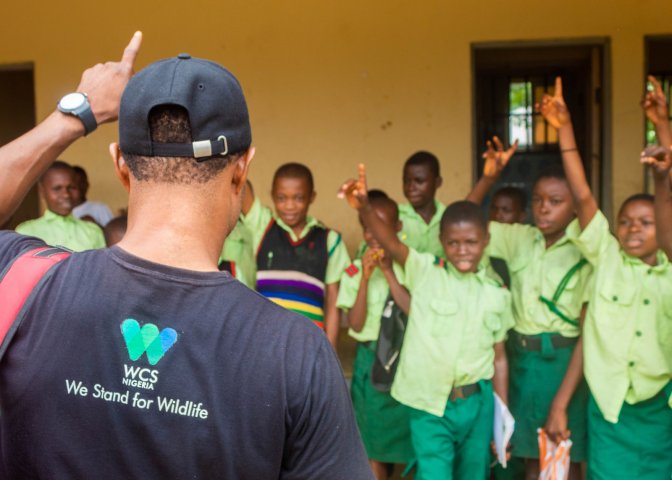Home / News / Conservation education reaches out to schools and communities surrounding (...)
Conservation education reaches out to schools and communities surrounding Cross River National Park
As part of the European Union-funded Support Programme for the Preservation of Forest Ecosystems in West Africa (PAPFor), the Wildlife Conservation Society (WCS) has successfully expanded its network of conservation clubs in schools surrounding Cross River National Park, Nigeria, from 72 to 246. Outreach activities including school visits, film screenings and teacher training were intensified in July 2023. As a result, these clubs have more than 10 000 enthusiastic schoolchildren members, igniting their passion for wildlife conservation and nurturing a sense of environmental responsibility.
In addition to classroom-based activities and lessons, conservation clubs also organise regular field trips to the national park to witness the marvels of nature firsthand, fostering a deep connection with their local ecosystem. Since the project began in December 2019, WCS has organised 102 field trips for school students and 83 school exchange visits to the national park to enrich students’ knowledge by sharing experiences and insights.
Staff from WCS and the National Park Service have completed 236 joint visits to schools around Cross River National Park. These visits nurture the curiosity of local students and have helped instil a profound appreciation for the environment. In recognition of the pivotal role of educators, WCS has trained 126 schoolteachers as facilitators of conservation education in schools around the park. This investment in capacity-building ensures that the torch of conservation will continue to be carried forward, inspiring future generations.
As part of its outreach programme, WCS also uses wildlife films to take conservation messages to isolated communities around the park. Since the start of the project, more than 218 film shows have been shown. These popular events that help engage the broader community, transforming entertainment into a powerful tool for disseminating conservation messages and fostering an environment of dialogue and understanding where local perspectives and insights help shape conservation strategies for the future. WCS is convinced that through a strong conservation education outreach programme, it can help change local attitudes and behaviours to conservation and build a more sustainable future for the national park.



